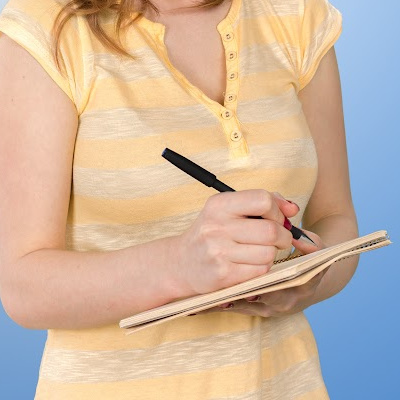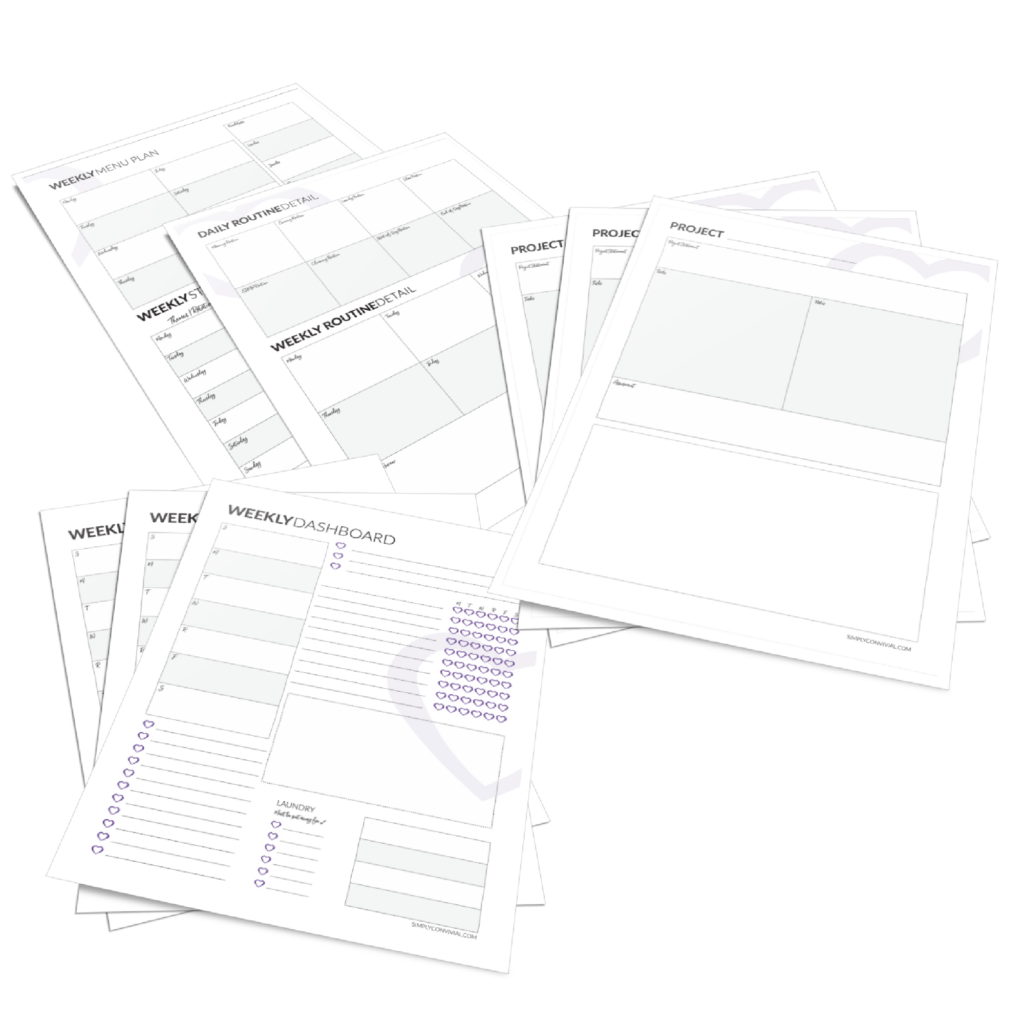How many planners have you tried using in your adult life? The number is likely more than one. When you’re trying to figure out how to organize your life, you assume it will take a planner, but why does it never seem to stick or to work? Using a planner to stay organized seems to not work for you. It’s frustrating.
The truth is that we tend to focus more on the pages and boxes in our planners or the size and color of our planners rather than on actually using them. When we learn how to use a planner, then it will help keep us organized no matter what brand or style it is.
After all, staying organized is more than keeping a calendar and a few lists – although your calendar is your most important organizational tool.
Being organized is about being prepared and ready for the day, so we can get done what must be done, with cheerfulness and grace. It’s not about squeezing the most out of every day or about making everything go our way.
A planner helps with being organized because it’s easier to keep track of things when they’re written down.

Using a planner to stay organized depends on the using, not the organizing.
It’s so tempting to think that the only thing keeping us from being organized is the layout of the planner page. If we just had that planner, then we’d finally have it all put together.
We spend time setting up or even creating from scratch what we hope will be our perfect planner that will finally work for us, but then it doesn’t.
Yes, we’re missing something. But it’s not about the planner; it’s about us.
Planning is one thing: thinking ahead, giving ourselves a clear path forward. But doing it is another. Doing it is the actual working of the plan.
No matter what planner you have, it won’t make your plans happen automatically. That will always take effort, time, attention, and intention – every day.
We need to not only have a plan, we need to look at it multiple times a day and we need to then do what it says. Those are the two habits that make planners truly work. With those habits in place, any planner will actually keep us organized.
Free Planner Templates
Using a planner to stay organized takes simplifying.
When we sit down with a planner, we tend to let wishful thinking take over. If it fits on the paper, it will fit in real life, right? We know that’s not right, but yet we do it anyway.
The truth is that the more we put into our planners, the less likely any of it will happen. If we have to visually and mentally sort through the plan whenever we look at, we’re defeating the purpose.
The purpose of a plan is to beat decision fatigue. When our thinking is clear and our resolve high, we write down as a note to our future self, what ought to be done when. If we can’t trust those notes or if those notes take extra work to figure out, then it’s just another obstacle, not a help at all.
A planner will help us be organized when it works at a glance to remind us of what’s on our plate. Clutter here is worse than clutter in the closet or cupboard.
Restrain your temptation to include all the things on your planner page. Put down only what you will actually be accountable to doing, what you are truly prioritizing. Then, when you feel overwhelmed or scattered, a look at your planner clears the cobwebs and puts you on the right path forward.
Keep it simple. Keep it easy to read and understand at a glance.
Using a planner to stay organized requires trial and error.
When we buy and arrange our planner, we think we’re putting a complete system into place that from here on out will change our lives and make it all work.
When it doesn’t, we assume the planner was the problem or we were a failure – but neither are necessarily true.
There is no single perfect planner and using a planner is a skill. We don’t assume our eight-year-old is a failure when it takes days and weeks and many repeated lessons to learn multiplication. We know that’s just how he’ll learn.
It’s the same with the skills of planning.
You learn by doing. You find out what you need written down, and what is clutter. You discover what format makes sense to you and whether no-nonsense bullet journalling or colors and stickers and designs will appeal – not which appeals to you when you’re at the table with all your supplies, busy making a great planner, but when you’re in the midst of the day to day.
Using a planner takes practice, and it takes time to figure out what will work. Plus, when life changes – and it will – your planner needs likely will change and adapt as well.
The fundamental habits of using a planner don’t change, but they do take practice. And the habits are:
- Make a plan.
- Look at it.
- Do it.
It’s not complicated, but it is difficult.
Although the hope of a fresh new year often expresses itself in new planners, pretty markers, and a renewed resolve, the reality of life lived with and for others often undermines our planner-related ambitions.
There are three reasons why planners are a waste of time for a stay-at-home mom and homemaker, though these hold true for others as well.



